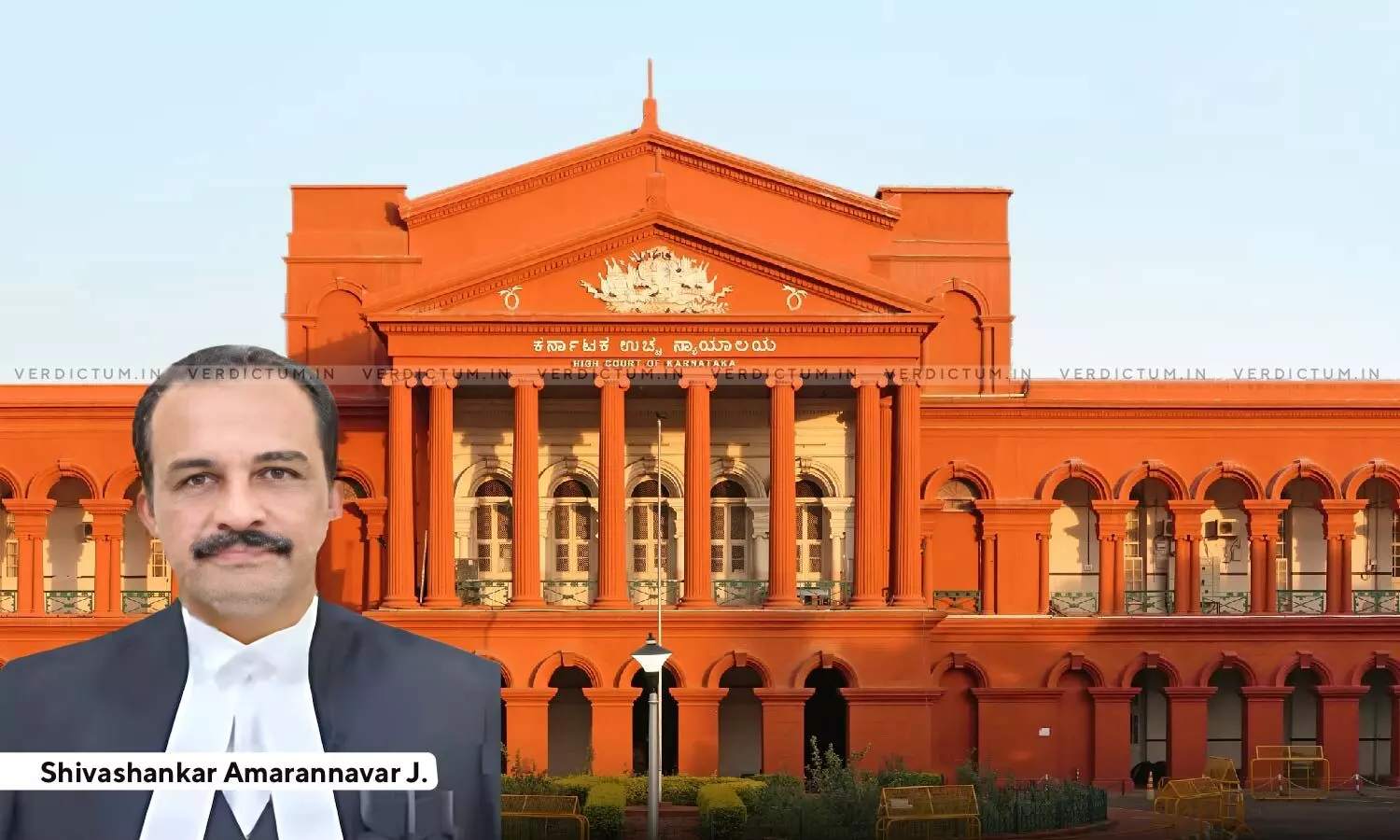
Harassment For Repayment Of Loan Alone Doesn't Constitute Abetment To Commit Suicide: Karnataka High Court
 |
|The Karnataka High Court held that appellant's insistence on repayment of a borrowed sum and the use of abusive language and threats, while unfortunate, did not amount to abetment and the appellant/accused could not be convicted under Section 306 of the Indian Penal Code (IPC) for abetting the suicide of the deceased as there was no clear intention on the part of the appellant/accused to drive the deceased to commit suicide. The case involved an appeal against a judgment of conviction under Section 306 of the Indian Penal Code (IPC). The appellant/accused was found guilty by the Trial Court for abetting the suicide of the deceased. The deceased and the appellant/accused were known to each other, and the appellant had lent money to the deceased.
A Bench of Justice Shivashankar Amarannavar held that, “On the consideration of the evidence on record, there is no evidence to show that the appellant/accused had intention to drive out the deceased Raju to commit suicide. Looking from any angle the act of the appellant/accused harassing the deceased for repayment of money borrowed and threatening him to take his life does not amounts to abetment.”
In April 2019, the appellant and her daughter visited the deceased's house, and on the same day, he committed suicide by hanging himself with a saree.
Advocate Siddharth B. Muchandi appeared for the Appellant and Advocate Rangaswamy R. appeared for the Respondent.
The appellant's counsel argued that the evidence presented was insufficient to establish the ingredients of abetment as defined in Section 107 of the IPC and Section 306 of the IPC.
The main issue before the Court was whether the Trial Court was correct in convicting the appellant/accused for the offense under Section 306 of the IPC, given the contentions raised regarding the insufficiency of evidence and lack of mens rea or intention on the part of the appellant to drive the deceased to commit suicide.
The Court noted that the post-mortem examination report established that the death was a result of suicide. The Court also noted that timeline raised questions about the delay in filing the complaint and the absence of the deceased's father, who passed away and was not examined by the prosecution. The elder brother of the deceased, wife, younger brother and cousin testified that the appellant/accused harassed the deceased regarding repayment of the borrowed money.
The Court explained that to establish abetment under Section 306 IPC, instigation is key, which involves provocation, incitement, or encouragement to perform an act.
The Court added, “There was no intention on the part of the appellant/accused to drive the deceased to commit suicide. The appellant/accused was interested in getting back the money lent to the deceased. In the case of suicide, mere allegation of harassment of the deceased by another person would not suffice unless there be such an action on the part of the accused which compels the person to commit suicide; and such an offending action ought to be proximate to the time of occurrence. Whether a person as abetted in the commission of suicide by another or not, only be gathered from the facts and circumstances of each case.”
The Court further said that suicide can result from a range of reasons, and it need not be linked to abetment relying on a Supreme Court judgment of Mangat Ram v. State of Haryana, AIR 2014 SC 178.
The Court said that the deceased had borrowed money for his lorry business and suffered losses, which could have been a contributing factor to his suicide.
The Court further clarified, “Having advanced money to the deceased the appellant/accused have uttered some abuse words and threatened him to take his life; but that by itself is not sufficient to constitute the offence under Section 306 of I.P.C. From the evidence brought on record and in facts and circumstances of the case, the ingredients of 306 of I.P.C is not established.”
The Court further held, “The circumstances established by the prosecution do not lead to only possible inference regarding the guilt of the appellant/accused. Therefore, the Trial Court was not right in placing burden on the appellant/accused under Section 106 of the Evidence Act, as the prosecution has not established its burden as required under Section 101 of the Evidence Act.”
The Court was of the view that the Sessions Judge erred in concluding that the appellant/accused abetted the deceased to commit suicide.
As a result, the appeal was allowed, the conviction and sentence were set aside, and the appellant/accused was acquitted of the offense under Section 306 IPC. Any fine paid by the appellant/accused was ordered to be refunded.
Cause Title: Mangala Gowri v. State of Karnataka, [2023:KHC:32254]
Click here to read/download Judgment